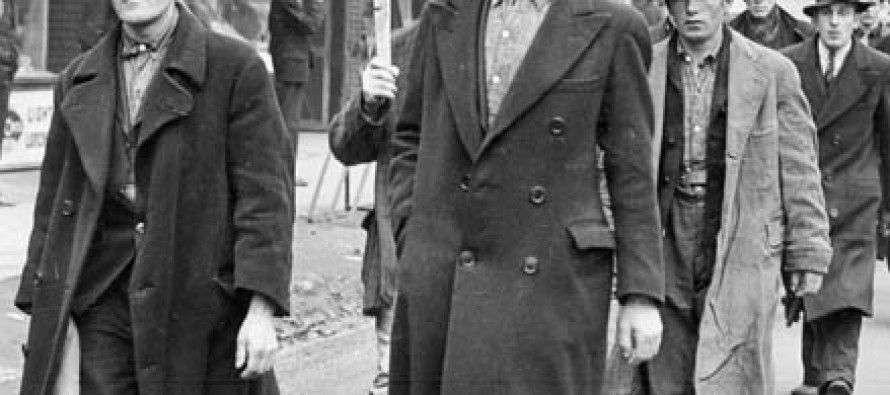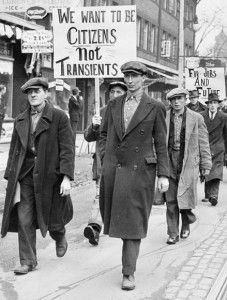CBP report shows weak jobs growth during recovery

In a new report, “Uneven Progress: What Economic Recovery Has Meant for California’s Workers,” the California Budget Project analyzed how the economic crash and recovery have affected the labor market in California.
After dramatically spiking in 2008 and remaining above 12 percent for all of 2010, California’s unemployment rate has gradually shifted downward. The most recently available data shows a 8.7 percent rate for California in July.
This has left many optimistic, including the governor.
Last month, before data for July was released, Gov. Jerry Brown boasted about the quality of California’s recovery in a flattering New York Times piece:
“'Some people were ridiculing California, and some were calling it a failed state,' Mr. Brown, a Democrat, said in an interview. 'The unemployment came down from 12.2 to 8.5. Real estate is rebounding. There’s a lot of confidence out there. That’s what happened.'”
Jim Tankersley, the level-headed Washington Post economic policy correspondent, correctly noted that, despite tax increases, California is still maintaining overall economic growth.
(Whether or not that economic growth is being hampered by tax increases is another question.)
“One thing, at least, seems clear: The doomsday predictions haven’t come true. California is still recovering,” he wrote.
It’s true. California is recovering. But the pace, quality and size of the recovery, which the CBP analyzed, is worth examining.
After all, fixating on unemployment numbers — often seen as the most important number in politics — or the rate of job growth, ignores other realities for the unemployed and workers alike.
The CBP report explained several interesting data points.
Uneven recovery
First, economic gains haven’t been evenly distributed. According to the report, men have seen their employment rate increase by 2.7 [percent], while the employment rate “among prime-working-age women actually declined 0.8 percentage points.”
Geographically, the gains (and losses) are also unevenly distributed:
“In the first six months of 2013, 34 out of California’s 58 counties had an average unemployment rate above 10 percent, and 31 of these high-unemployment counties – all but three – were inland counties. Overall, the unemployment rate in inland counties was 11.6 percent, while it was 8.2 percent for coastal counties. The lowest county unemployment rate in the state was 5.1 percent in Marin County, and the highest was 24.5 percent in Imperial County.”
Also, the recovery, though potent, is far from complete.
“If California’s job market continues to grow as it has over the past year, the state will not recover the jobs lost due to the Great Recession until January 2016,” the CPB report said.
And January 2016 is probably too optimistic. The report argued that, since population growth continued despite economic shrinkage, “the state’s economy will need to add even more jobs to put California back to where it was in 2007.”
That timeline only adds greater stress for the long-term unemployed, all 761,000 of those who have spent six months or more looking for jobs.
Life is also hard for the underemployed, an unfortunately large class of workers.
The report pointed out that 1.3 million California workers have part-time jobs but want, or need, full-time work. Even worse, most involuntary part-timers are single parents.
Low-wage jobs
Meanwhile, the report said, most job growth has come in the form of low-wage positions. The CBP defined low-wage workers as “those with earnings at the 20th percentile.” That is, they're in the bottom 5 percent of wage earners.
And those lucky enough to have jobs — like workers in the hospitality and leisure industry, from which nearly a quarter of all new jobs came — continued to see a decline in earnings from pre-recession values.
Most shocking, though, is just how few workers there are, given California’s size and historical employment numbers. The recession has led to the smallest share of the population working since Jimmy Carter was in the White House.
Related Articles
Fined Russian firm gets Ft. Ross
JULY 1, 2010 By ANTHONY PIGNATARO Last week Gov. Arnold Schwarzenegger signed an agreement with the Russian corporation Renova Group
What effect with Trump have on CA GOP?
With Republican party leaders casting about for a way to stop Donald Trump, California has emerged as a possible
State Has Yet To Hit Bottom
NOV. 28, 2010 Anyone who has dealt with a loved one deeply involved in some destructive behavior understands that there’s




